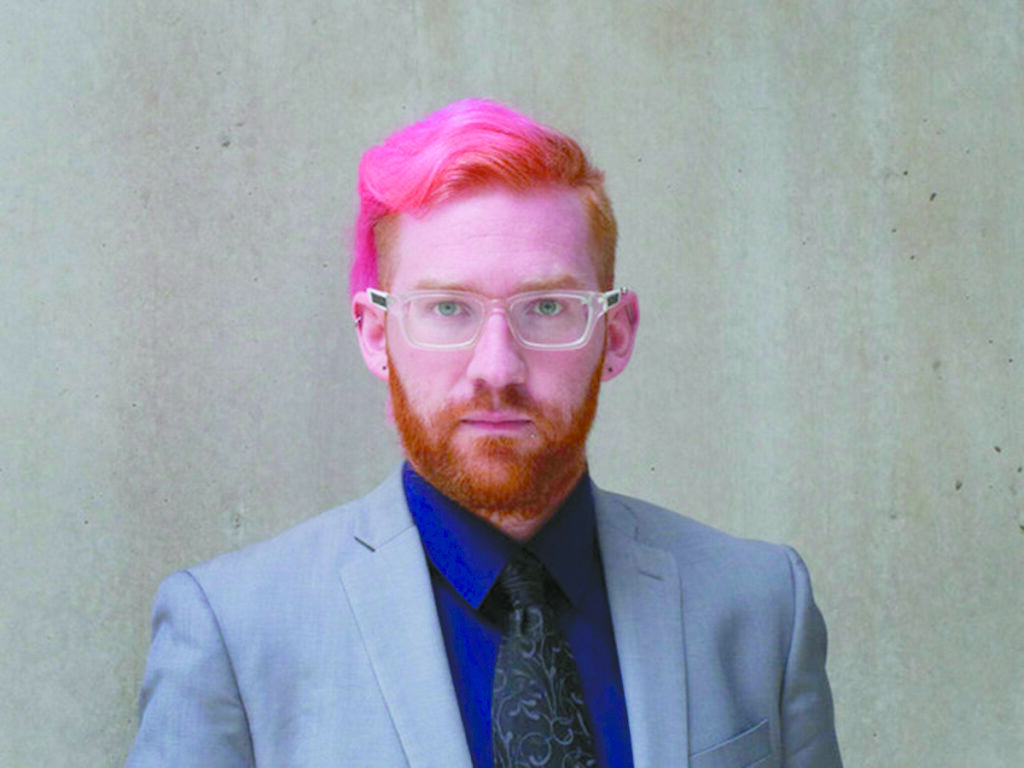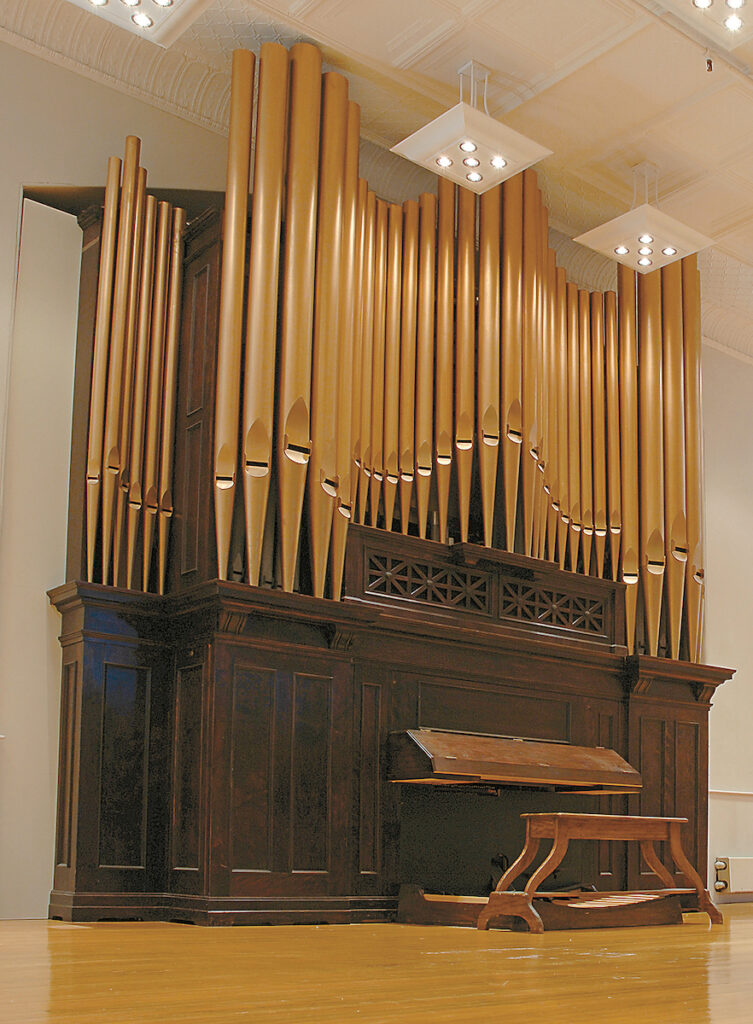Osher School of Music resident organist and artist faculty member, Justin Murphy-Mancini, makes his inaugural Faculty Concert Series concert debut this winter, live from the Corthell Concert Hall stage, performing on the Corthell Hall Organ.
The concert will be held on Friday, Jan. 27 at 7:30 p.m. Tickets are $15 for the general public, and $10 for students, seniors, alumni, faculty, and staff. Tickets can be purchased online, at the door, or by calling the Music Box Office at (207) 415-1979. The concert is sponsored by Murray, Plumb, and Murray.

While concert audiences have long become familiar with the sight of the Corthell Hall pipe organ, it has been many years since the instrument has been featured in a concert. The organ is named after Eric Sexton and Howard Davis, men whose vision and efforts have provided the University with a unique musical instrument.
Eric H.L. Sexton, originally from Philadelphia, later from Camden, Maine, was a scholar and collector who had an interest in pipe organ building. After acquiring several electro-neumatic organs, he built two complete pipe organs over a period of several years; a smaller Aeolian organ, and the larger eighteen-rank concert organ. His wife, Beryl Sexton, heard of USM’s music education needs and bestowed both pipe organs to USM.
In the fall of 1995, Mr. Howard Davis of Falmouth, who also had an interest in pipe organs, became aware of USM’s efforts to restore and install the Sexton organs. Following his untimely death, the Davis Family Foundation agreed to fund the restoration of the concert instrument in his memory. The David E. Wallace & Company Pipe Organ Builders of Gorham has been responsible for the organ’s renovation and installation.

The concert program is described here by Murphy-Mancini: “The program investigates the variation form throughout the history of the organ’s repertoire. There might be something about the organ that makes composers want to write variations–unlike most other instruments, the organ’s design includes a wide variety of timbres and pitch levels without the need to extend the basic playing technique. It’s almost like a little orchestra for one, so perhaps there is a natural marriage between easily changed sound qualities and the alteration of a basic musical idea.”
“Nowadays, playing variations gives audiences who might not be familiar with how an organ works the opportunity to hear all of the tonal combinations that are possible. I started my repertoire selection with one of the greatest sets of variations ever written: the Passacaglia and Fugue in C minor by Johann Sebastian Bach. This work presents 20 continuous variations over the same bass line, but Bach ups the ante by then composing a fugue using the bass line plus an additional, new subject not yet heard in the piece. From there, I branched out, selecting music by some of Bach’s predecessors (who may have inspired his Passacaglia) and those who bear Bach’s influence.”
“While the organ is not as popular today as it once was, great composers still write beautiful music for the instrument. We should be seeking out the music of living composers to broaden our taste and to increase our appreciation of the greats by hearing their continuing impact.”
Justin Murphy-Mancini came to the Osher School of Music in the fall of 2022. He began studying piano at an early age before quickly developing parallel interests in the double bass and the organ. These early experiences led to an interest in composition, which was nurtured by his early mentor Nicolas Scherzinger. Justin is a graduate of Oberlin College and Conservatory of Music, where he earned degrees in historical performance, organ, composition, and philosophy. His principal teachers included Jack Mitchener, Webb Wiggins, Marie-Louise Langlais, Steven Plank, and Catharina Meints. He earned a Ph.D. in composition at the University of California, San Diego, where he was mentored by Katharina Rosenberger, Rand Steiger, and Natacha Diels.
For those needing special accommodations to participate fully in this program, contact the Music Box Office at (207) 780-5555. Hearing impaired: call USM’s telex / TDD number (207) 780-5646.


